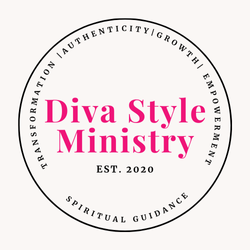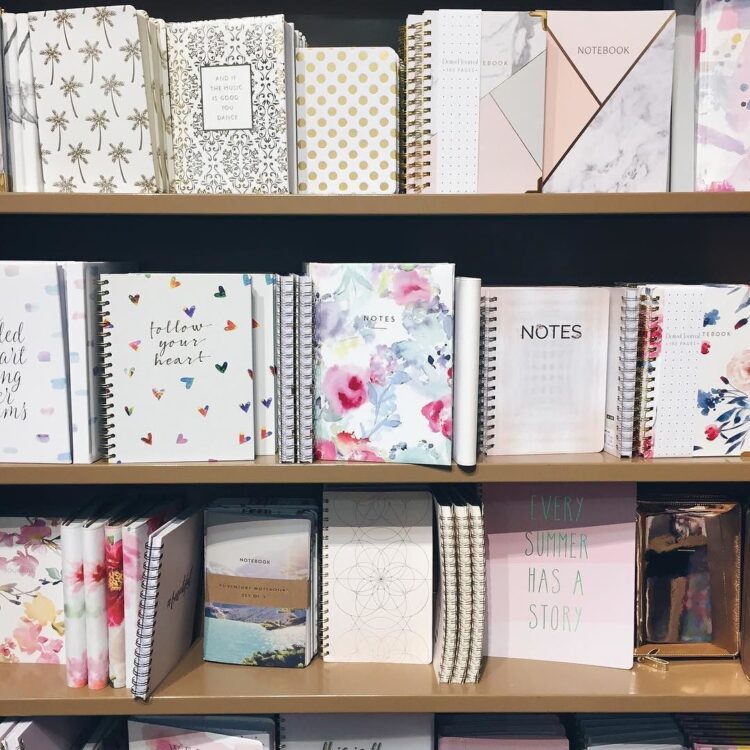When you begin journaling, it will occur to you that having more than one type of journal could be a wonderful way to keep everything organized. Keep reading for inspiration into 10 different types of journals you can create for your own use.
When you have more than one type of journal, you can simply go to the specific journal to work on one issue at a time or keep something organized so you can make better decisions.
1. Bullet Journals – This type of journal is useful for anyone who:
- has lots of to-do lists
- loves using a pen and paper
- and who enjoys goal tracking.
Your journal should have a table of contents that you create as you add to it. This will enable you to find things more easily. You’ll use symbols, colors, and lines to make your bullet journal. You should be able to understand immediately what’s on the page.
2. Vision Journals – You may have heard of vision boards; this is a  remarkably similar process, except that it’s a journal that helps lead you to your vision. The way a vision journal works is that you set up the journal to have only one goal per page.
remarkably similar process, except that it’s a journal that helps lead you to your vision. The way a vision journal works is that you set up the journal to have only one goal per page.
Then you can write words, add pictures, or draw something that enables you to make plans to reach that goal. When you do reach the goal, be sure to go back and add the date of achievement. In doing so, your journal also becomes a place where you can review your accomplishments.
3. Line a Day Journals – This journal is exactly what it’s called – you write down only one line a day. You will simply write in the journal a short line about what you did that day. It should be only a sentence or two at the most and should not take up that much space in your journal. Some people like using a calendar and a pen for this.
about what you did that day. It should be only a sentence or two at the most and should not take up that much space in your journal. Some people like using a calendar and a pen for this.
If you’re just starting a journaling habit, this might be a wonderful way to help you establish the habit and keep it going. Taking 21 to 28 days to establish a habit like this one won’t take much time. It can be incorporated into even the busiest schedule.
4. Classic Journal – This is simply a diary, and you can write whatever you want in it every day. It can be long, short, or you can skip days if you want to. The classic journal is just like the diary that you may have kept as a child. You write whatever you want in it daily.
The amount of space you use on a daily basis depends on you – you can start with just a blank book, one that’s blank but has lined pages, or whatever configuration suits you.
5. Prayer Journal – This is a focused type of journal where you act like your diary or journal is your higher power. Write to God, Spirit, or your Higher Self your prayers instead of saying them aloud . Write them down so you remember them and can look back on them.
. Write them down so you remember them and can look back on them.
You can also speak your prayers aloud once you’ve written them down. Having the written record can prove valuable as you look back on your times of growth and accomplishment.
6. Dream Journal – Some people really like tracking their dreams because they believe that dreams provide signs for life. If you want to track your dreams, you must train yourself to write in your dream journal every morning while you still remember the dream.
Write about the dream and then research what it means and write about that too. Keep your dream journal right beside your bed so it’s within easy reach.
7. Food Journal – Write down everything you eat every day. Some people  like to include the calorie contents and so forth. It can also help to write down why you eat it, how you felt about eating it, and things like that.
like to include the calorie contents and so forth. It can also help to write down why you eat it, how you felt about eating it, and things like that.
Tracking what you eat is valuable but tracking your feelings and thoughts may be even more valuable. You can discern patterns – do you eat badly when you’re tired or frustrated? When you’re happy and celebrating?
Knowing your “triggers” – for good or for bad – can make it easier to adjust your behaviors ahead of time and help keep you on track.
8. Travel Journal – A wonderful way to remember your travels is to keep a travel journal. Some people like making one for each trip so that its easier to remember. You can write your thoughts in your journal, but you can also attach tickets, pics, and memories.
A travel journal kept over a longer period could become a personal or family keepsake, preserving memories for future generations.
9. Gratitude Journal – This is just what it sounds like. It’s a journal where you record each day what you’re thankful  for and grateful for. Nothing can be negative in this journal because it’s designed to help you think more positively.
for and grateful for. Nothing can be negative in this journal because it’s designed to help you think more positively.
When you’re having a tough day, reviewing what you’re grateful for can help turn it around. When your spirits are already up, looking at why you’re grateful can deepen your feelings and provide a bolster against future challenges.
If you’re ready to start your own journey of Gratitude, click the image on the left to get all the details and purchase your copy of “Giving Thanks” – our 1 year Gratitude Journal.
10. Project Journal – This is a handy journal to keep, especially for anyone who constantly works on projects. Keeping a journal of each project you work on that records actions taken, results, and data will help you improve every project but will also help you look back on this one with excitement.
You can keep receipts of expenses, notes on suppliers, and even instructions on how to replicate a particular color, finish, or other aspects of the project. Information like that can be invaluable for reviewing your successes and sharing them with others.
If you want to journal to help work through a problem, keeping specific journals for different things is an effective way to go about it. It’s also a wonderful way to store your thoughts and memories for the future in a more organized and useful manner.





